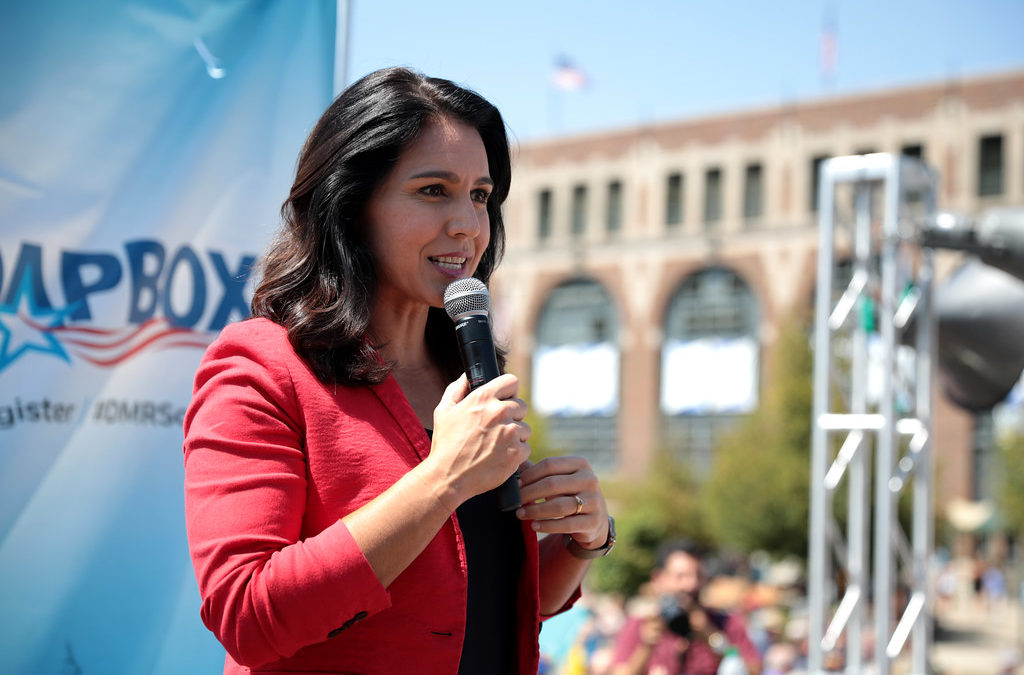Rep. Tulsi Gabbard (D-Hawaii) is calling on former Vice President Joe Biden and Sen. Bernie Sanders (I-Vt.) to urge the Democratic National Committee (DNC) to allow her onstage for the next primary debate after newly released qualifications for the event barred her from participating.
“@JoeBiden @BernieSanders I’m sure you would agree that our Democratic nominee should be a person who will stand up for what is right. So I ask that you have the courage to do that now in the face of the DNC’s effort to keep me from participating in the debates. #LetTulsiDebate,” Gabbard tweeted late Friday night.
The direct call to Biden and Sanders, the two heavyweights remaining in the 2020 primary race, comes after the DNC said candidates must have garnered at least 20 percent of the delegates awarded thus far to make the debate stage in Phoenix on March 15.
Gabbard, who has refused to drop her long-shot White House bid despite dismal results in the first several nominating states, has garnered just two of the 1,385 delegates awarded thus far, falling way below the threshold. She has not qualified for a debate since November under previous standards from the DNC.
Six states will hold primaries and caucuses Tuesday, though it is virtually impossible that Gabbard will net enough delegates from the contests to hit the 20 percent mark.
The Hawaii lawmaker has repeatedly railed against the DNC, accusing it at times of seeking to kneecap her campaign. She specifically cited a rule change last month regarding the polling qualifications for debates that allowed former New York City Mayor Michael Bloomberg to appear onstage twice before he dropped out of the race.
“To keep me off the stage, the DNC again arbitrarily changed the debate qualifications,” she tweeted. “Previously they changed the qualifications in the OPPOSITE direction so Bloomberg could debate. I ask that you stand w/ me against the DNC’s transparent effort to exclude me from the debates.”
The Hawaii Democrat, an Iraq War veteran, has centered her long-shot White House bid around reducing America’s military entanglements abroad, but she has faced criticism over a 2017 meeting with Syrian President Bashar Assad and her past positions opposed to LGBTQ rights.
By Tal Axelrod [The Hill]

